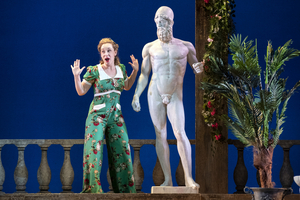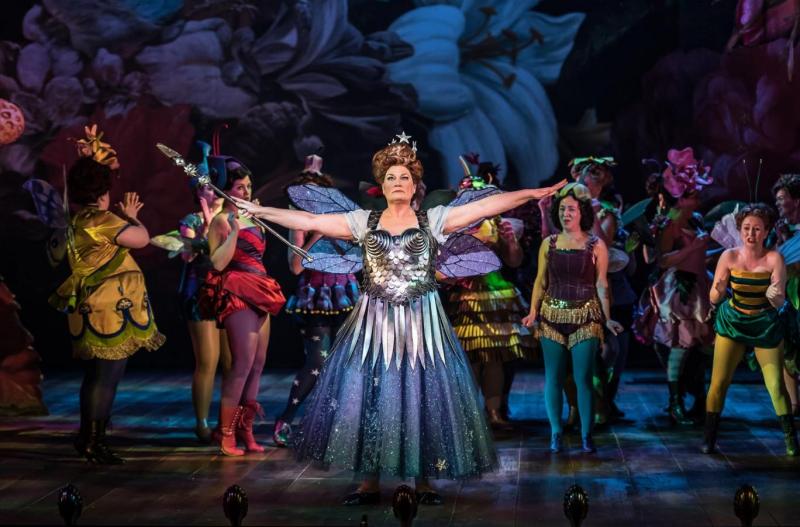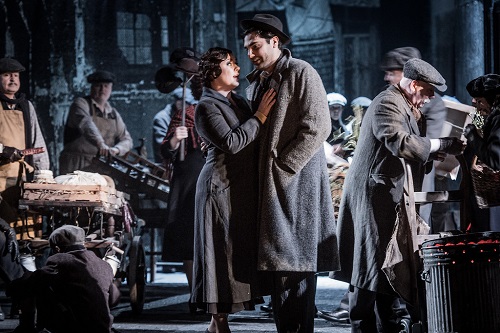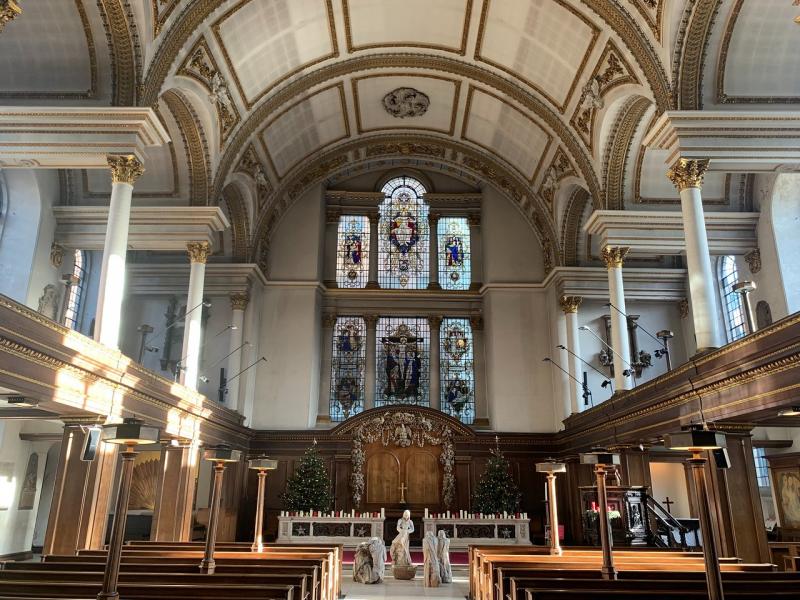The BroadwayWorld Beginner's Guide to: Opera
We bring you the ultimate guide to this incredible art form

One of the few positives that has come out of the pandemic is that there has never been more opportunity to experience something new. Theatre, ballet and opera companies have quickly realised that their reach is now potentially worldwide and a new audience awaits online.
For many, the idea of opera brings to mind a night out that is stuffy, elitist, expensive and outdated. We'd like to see if we can change your mind. Here, Broadway World brings you a beginner's guide; to explain, describe and ease you into this exquisite art form.
Opera is not for me.
It's best to think of opera simply as amazing entertainment. Opera, like any form of theatre, touches on many things that captivate, enthrall and make a really good story: drama, love, death, money, magic, power. It can be complex and intellectual, but also romantic, heartbreaking and incredibly funny. You do not have to like everything, but there really is an opera for everyone.
The types of singers is confusing.
An opera cannot exist without singers and performances give an opportunity to see the human voice at its most emotional and powerful. Opera singers also perform without microphones, which make their vocal gymnastics even more impressive.
All singers cannot sing all roles, as they are written for different levels and pitches of voices. Here is a short, but excellent guide to opera voice types from The Royal Opera. The names of the singers are as follows:
Female
Soprano - the highest voice. Here is Soprano Marjorie Owens singing "Virgin Goddess" from Bellini's Norma.

Photo Credit: Clive Barda
Mezzo-soprano - lower than soprano. Have a listen to Mezzo-soprano Yvonne Howard singing "Oh, foolish fay" from Gilbert and Sullivan's Iolanthe
Contralto/Alto - the lowest female voice.
Countertenor - The highest in the male voice range, this also falls within a woman's voice range.
Male
Tenor - Usually the highest male voice.
Baritone - the most common male voice in an opera. Here is the excellent Baritone Alan Opie singing "In time, your youth will fade away" from Verdi's La Traviata.
Bass - The lowest voice. The name comes from the Italian word basso, which means low.
I won't understand the story.
Many people are put off opera because they do not speak Italian, German or French. These days, no-one actually expects you to. Generally, venues will display surtitles above the stage to let you follow the plot, or subtitles are available online. Some opera companies, such as English National Opera and OperaUpClose actively chose to sing their operas in English, so you don't need to worry about knowing what's happening.
Know the plot. It really helps to have an idea of the plot before you see an opera for the first time. It will help you follow the storyline and enjoy the production more easily, especially if you are listening to it in a foreign language. Check out a synopsis online or buy a programme at the venue.
I don't know the etiquette.
To clap, or not to clap? This is something that definitely worries newcomers to opera, as no-one wants to be the only person clapping in a theatre. Generally opera is more relaxed than classical music concerts. In Italy, where opera originated, loud applause and shouts of 'bravo' are actively encouraged. If you want to clap after a particularly brilliant aria, then go for it.
Do I need to wear black tie? Absolutely not! Some people like to really dress up, others turn up in jeans and trainers; anything goes, so there's no need to feel trussed up unless you want to.
I don't know anything about opera.
Even if you do not think opera is for you, you probably know more opera than you think you do. Here are a few songs you will probably be familiar with:
- "Flower Duet" from Lakmé by Léo Delibes. Anyone who has ever watched an advert for British Airways will be aware of this song.
- "O sole mio" by Capurro and Capua. Made famous by that ice cream advert.
- "O mio babbino caro" from Gianni Schicchi by Puccini. Heard in countless productions from the film A Room With A View to TV's Downton Abbey.
- "Nessun dorma" from Turandot by Puccini. One of the best-known arias, made even more famous by the incredible Luciano Pavarotti from the 1990 World Cup.
- "Habañera" from Carmen by Bizet. Well-known, but cunningly used in Pixar's 2009 animated classic Up to show naughty side to the character Carl.
- "Ride of the Valkyries" from Ring cycle by Wagner. Used by film and TV makers numerous times, but most famously in Apocalypse Now.
I don't know where to start.
You already know if you like comedies, dramas or tragic stories, so go with that as a starting point. Here are a few suggestions to get you going:
Tragedy

Photo Credit: Robert Workman
A group of bohemian friends find life, love and poverty in the streets of Paris. There is passion, jealousy, sickness and heartbreak in Puccini's masterpiece. It takes a very hard heart to end without a tear in your eye. If you like the musical Rent, you already know the story!
Comedy
An opera buffa, or comic opera, where barber Figaro ducks and dives to appease and placate his benefactors, whilst also trying to be a matchmaker for young lovers. There is chaos, confusion, mistaken identity and anger, all fused with a truly hilarious plot.
Gilbert and Sullivan's satirical operetta is as silly as it is funny. Following the trials and tribulations of fairy Iolanthe, it also pokes fun at the British system of government and the peers of the realm.
It's so expensive
Of course, if you are so inclined, you can easily spend hundreds of pounds for stalls tickets at The Royal Opera House or a performance at Glyndebourne. However, there are a multitude of ways to access a performance for just a few pounds, or even for free.
Where can I watch opera?
At home
Marquee TV is an incredible streaming service shows opera productions from The Royal Opera House, Madrid's Teatro Real and Verona's magnificent arena to name a few. Subscription is £89.99 a year, but they also run an excellent free trial.
New York's Metropolitan Opera website runs a free-to-view performance stream every day, but also have a subscription which gives you access to their 700 filmed productions. This costs $149.99 a year, but there is also a 7-day free trial.
OperaVision has a brilliantly diverse range of opera from all over Europe, streaming for free.
Opera North is sharing some of their productions on their website for free, although donations are very welcome.
BBC Radio 3 is a treasure trove for opera lovers, with frequent live and recorded operas from around the world.
Opera Streaming is a brilliant, new YouTube channel from the opera house of Italy's Emilia-Romagna region. The range and quality of the productions are outstanding.
Live Performances
OperaUpClose is an award-winning opera company who perform stripped-down and accessible versions of operas in English, often with simply a piano accompaniment. Their productions are easy to follow and superb quality, but also incredibly affordable.
English National Opera start their tickets at just £10, but they are incredibly keen to encourage newcomers to opera. Opera Undressed is an initiative for first-time opera-goers. For just £20 you get a great seat, a drink, a pre-performance talk and 50% off future productions. Access All Arias is targeted at full-time students and those aged 16-29, offering brilliant seats at prices starting from £10.
Surprisingly, the iconic Royal Opera House also offers cheap tickets, with their Welcome Performances for families having tickets starting at an incredible £5. Students can sign up for Young ROH which offers tickets starting from £10. Unbeknown to many, the venue also holds regular lunchtime recitals that are totally free!

Photo Credit: St James' Piccadilly
There are some amazing places in London which hold free concerts for all. The beautiful St James' Piccadilly is Sir Christopher Wren's mini-masterpiece and often holds free lunchtime recitals.
For those outside London, Welsh National Opera and Scottish Opera also start their tickets from just £5. English Touring Opera performs around the country, with very reasonable ticket prices as regional venues.
The Royal Opera House and the Metropolitan Opera are some of the many opera companies that also screen some of their productions live to local cinemas. Tickets are very reasonable and give a great opportunity to the public to see incredible productions on their doorstep.
However you access it, there's never been a better time to try out opera, or even return to it if you haven't experienced it for a while.
We would love to know your thoughts on this: have you tried an opera for the first time? What did you think? Have you fallen in love with opera? What are your favourite or least favourite aspects of it?
Photo Credit: Richard Hubert Smith
Comments
Videos

